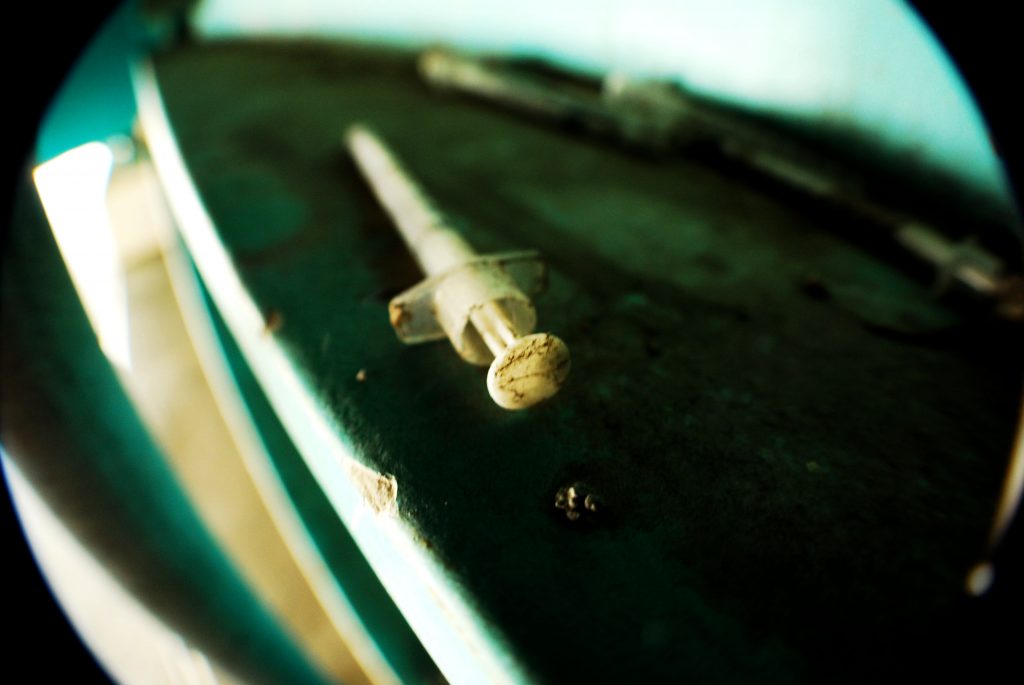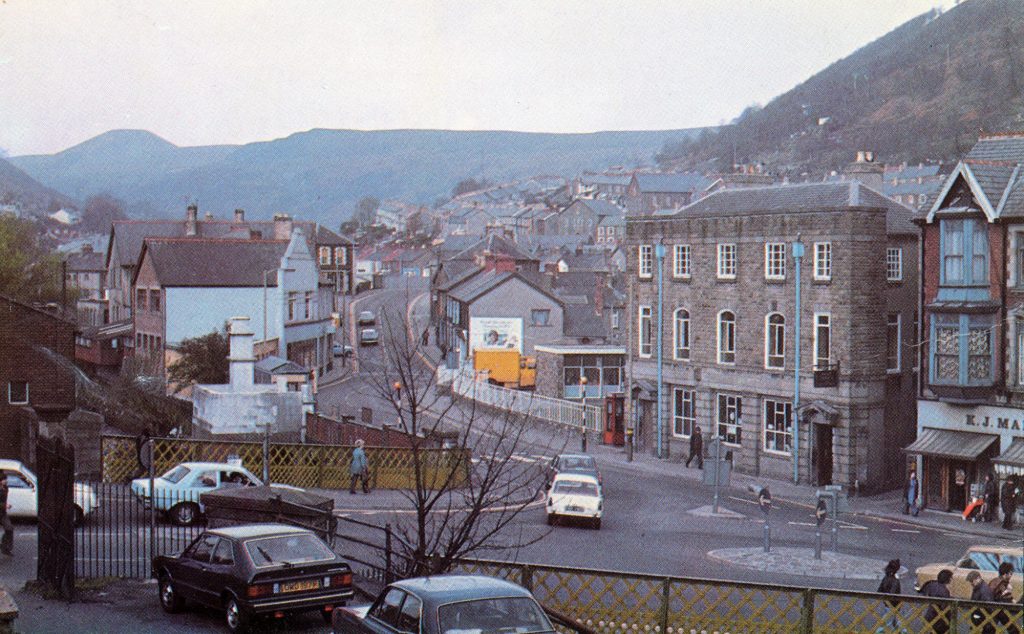Following in the footsteps of Durham’s Ron Hogg and others, Arfon Jones, Police & Crime Commissioner for North Wales, has this week spoken out about the need to reform drug policy in the UK. Jones recently became the latest PCC to lend his voice to the growing calls for the decriminalisation of all drugs, and particularly for the need to establish Supervised Injecting Facilities (SIFs) for injecting drug users. On Tuesday evening, he appeared in a documentary on BBC Wales to explain his views.
The documentary, somewhat provocatively titled ‘Cop-Out on Drugs?’ followed Jones as he visited Portugal to see firsthand the effect that decriminalisation has had there, and asked the question of whether this approach could work in the UK.
Of course, the fact is that this seemingly simple question is in fact nigh on impossible to answer, especially in a half hour BBC documentary. In truth, the film provided no answers, but what it did do – successfully in my view – was to highlight the ways in which current policy is failing drug users in Wales and, by extension, the whole of the UK.
The juxtaposition of shots of addicts in Wrexham and Cardiff (and the litany of needles, syringes, and other drug paraphernalia littering the streets in certain neighbourhoods) with the scenes in Portugal and Switzerland of drug treatment facilities, ‘dissuasion commissions,’ and voluntary organisations distributing needles, foil, and – importantly – advice and counselling, told its own story.
Particularly telling was the difference between Mick, a heroin addict living on Cardiff’s streets, who told the filmmakers that, at the age of 55, he had “had enough” of his life, and Peter Richard, a heroin addict in Switzerland. Peter was first interviewed by the BBC 15 years ago, at which point he was being supplied with medical grade heroin by the Swiss Health Service, which he injected at a Supervised Injection Facility under the watchful eye of health professionals. Interviewed again for this film, Peter explained that after five years of visiting the SIF, he felt able to stop using heroin completely. “He is in good health,” the narrator explains, “and says he has no cravings for any drugs.”
The difference could hardly be more clear. Abandoned by the state and living on the streets, Mick feels helpless. His heroin use is causing him harm, but it is also his only escape from the monotony and pain of his daily life. Peter, meanwhile, received the help he needed to continue to be a functioning member of society. He was not allowed to slip through the cracks, and will not end up as just another drug death statistic. The same may not, sadly, be true for Mick.
Where the film fell down, however, was in its failure to really drive home these differences. It didn’t, for example, spell out in detail the full positive effects of Portugal’s law change. Before 2001, Portugal had roughly 100,000 heroin users out of a population of around 10 million. Rates of HIV/AIDS among those users were the highest in Europe, and drug-related crime was out of control. Now, overdose deaths in Portugal rank among the lowest in the European Union, at 3 per million residents. The EU average is 17.3. HIV rates linked to drug use dropped by 13% in just 5 years, and drug use as a whole is now considerably lower than the EU average. A similar pattern can be seen in Switzerland.
In contrast, drug deaths in the UK have never been higher, despite the fact that the number of people using has declined. Treating drug users as people in need of help, rather than as criminals, has saved countless lives. Had this fact been pointed out in the film, it perhaps would have made some of the arguments put forward by interviewees against reform seem a little ridiculous at best.
In fairness to the filmmakers, this was the BBC. They have to be impartial, and of course there are going to be arguments for and against change. In fact, one of the interviewees who sounded a note of caution was the man credited with implementing Portugal’s decriminalisation policy, João Goulão himself. He correctly pointed out that just because the policy has worked in Portugal, that doesn’t mean it will work elsewhere. The UK, he suggested, may not be ready for such a change just yet.
He had a point, and it was clear that Arfon Jones took his words to heart, after all caution is necessary when dealing with an issue as complex as this. But not all of the dissenting voices were quite so eloquent or correct. The most egregious was Chris Bryant MP, who dismissed the whole notion of reform by suggesting – quite wrongly – that anyone advocating for change just wants more people to use drugs, even if they don’t admit it. At best, his words suggested that he hadn’t studied the evidence. At worst, that he was deliberately ignoring it.
Bryant attempted to explain his point more fully later in the programme by claiming that, “If there were an extra 50 people in the Rhondda who ended up taking heroin or crack cocaine then I think that would be a failure of British public policy.” There are two problems with this point of view, however. Firstly, the evidence does not suggest that there would be a significant increase in the number of crack cocaine or heroin users following decriminalisation. If anything, evidence from Portugal and Switzerland suggests numbers of injecting drug users would likely decrease. Secondly, even in the hypothetical case of there being an increase in use, the logic used by Bryant and others who subscribe to this way of thinking suggests something quite troubling – that he, and they, value the continued sobriety of non-drug users over the lives of drug users.
Quite simply, more drug users die when they are left to their own devices and/or prosecuted and stigmatised by the state. Without help, they are less likely to stop using, and more likely to engage in high-risk behaviours such as sharing needles, which in turn increases the risk of catching HIV/AIDS or other blood-borne viruses. They are more likely to be homeless, unemployable, and to commit acquisitive crime, and as a result are far more likely to come to serious harm, either from their drug use itself or from other people and activities associated with it.
In a decriminalised or regulated system those users would be treated humanely, would have access to the best possible harm reduction methods, and would be far less likely to die. Bryant, however, would maintain the status quo in a misguided effort to keep 50 people sober rather than keep 50 drug users alive.
I asked Arfon Jones what he thought of the final programme, and he agreed that because of the “BBC policy of showing both sides of the argument…it was always going to be tough to edit it down to 30 minutes.” However, he also felt that “Mr Bryant’s response was weak and could be summed up as continuing to do the same thing over and over and expecting different results. That is why,” he continued, “the war on drugs is an expensive failure.”
The main issue with the programme then was that it didn’t do a good enough job of presenting the evidence and challenging some of the more evidence-free claims of some of those interviewed. This is perhaps to be expected, given the restraints of a half hour documentary. Hopefully, what it did show is that there is another way, and with any luck there will have been people watching who might have had their eyes opened to another way of thinking. Thankfully, Arfon Jones still seems to be convinced of the need for change – hopefully he will keep his resolve and keep fighting, because if this documentary was to be believed he’s still got an awful lot of people to convince.
Watch ‘Cop-Out on Drugs?’ on BBC iPlayer.
Deej Sullivan is a journalist and campaigner. He regularly writes on drug policy for politics.co.uk, London Real, and many others, and is the Policy & Communications officer at Law Enforcement Against Prohibition UK. Tweets @sullivandeej


